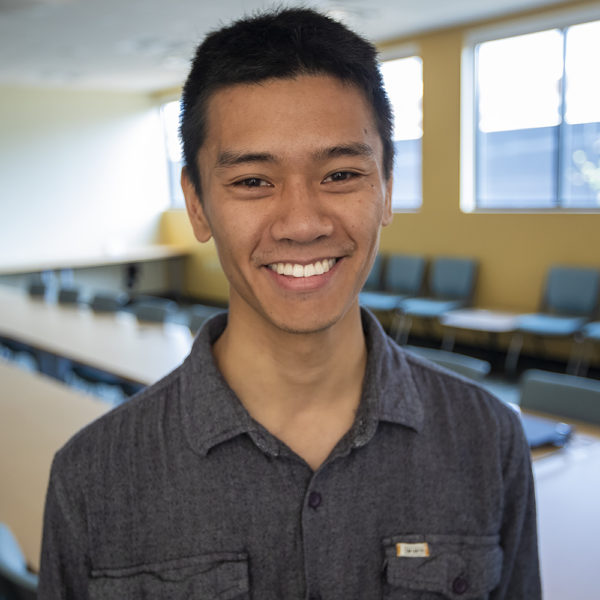Advertisement
Coronavirus Coverage
'It's Definitely A Relief': Mass. Health Care Workers Begin Receiving Coronavirus Vaccine
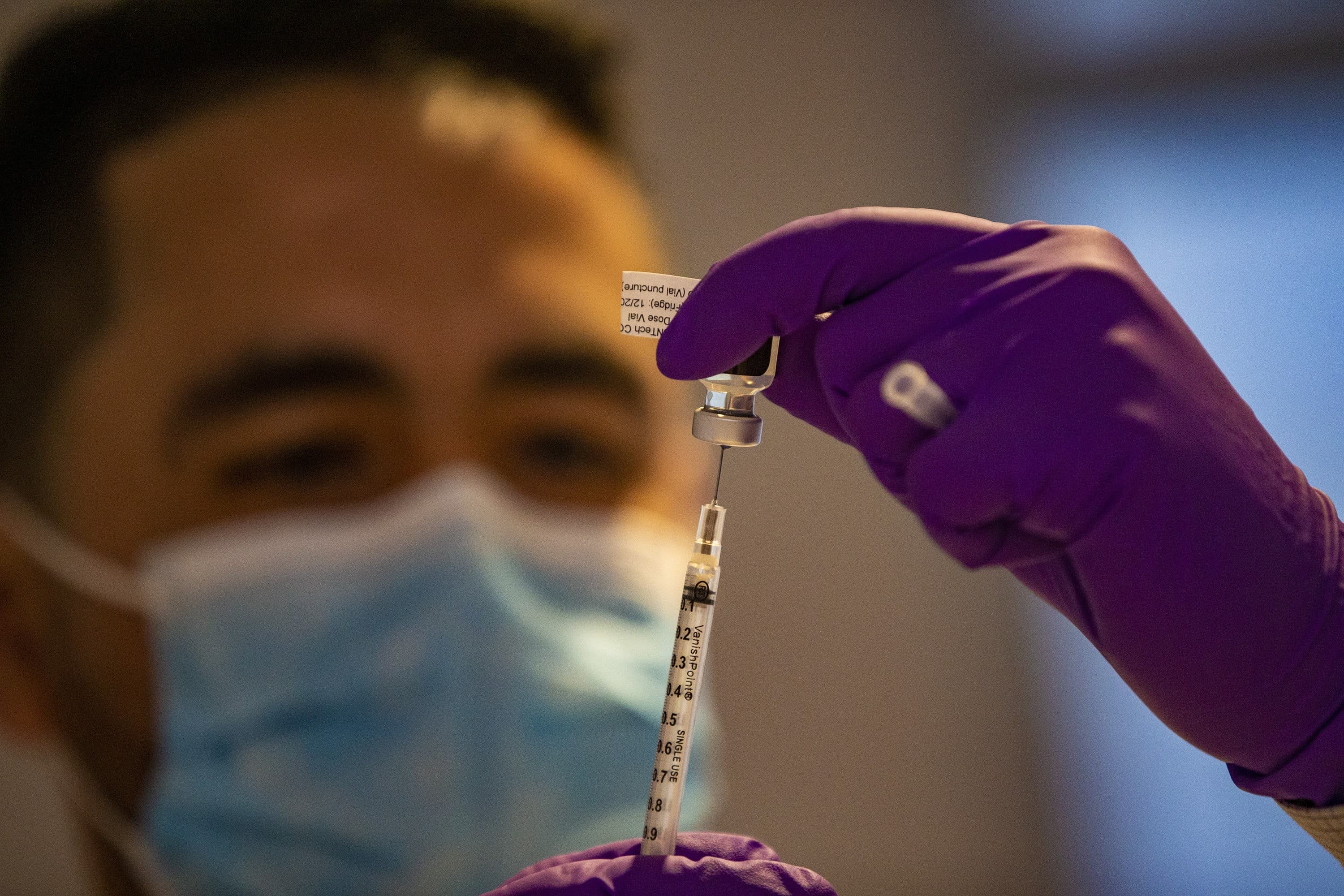
Health care workers administered the first COVID-19 vaccines in Massachusetts to their own on Tuesday. Doctors, nurses, cleaning staff and others stationed in COVID units, emergency rooms or other front-line positions received the injection after workers unpacked the frozen vaccine vials in a puff of cold mist.
The arrival of the vaccine, developed in record time by Pfizer and BioNTech, a German company with U.S. headquarters in Cambridge, has been met with jubilation from health experts. The beginning of these injections, they say, marks a big step toward ending the pandemic.
"I want this vaccine right away, because with 95% efficacy, this is astoundingly effective," says Dr. Chris Gill, an infectious disease specialist at Boston University. "I want 300 million people to get vaccinated with this as quickly as possible so we can kind of go back to our normal lives."
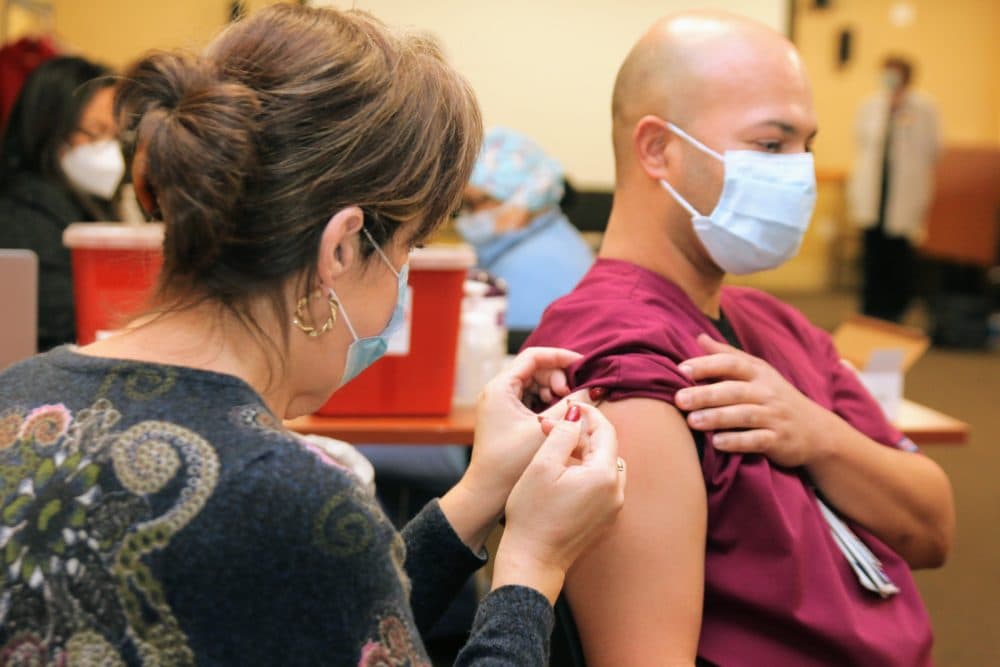
In all, 21 Massachusetts hospitals received their first shipments of the vaccine Monday and Tuesday. A total of 59,475 doses are scheduled to arrive this week.
One of them went to Charlton Memorial Hospital in Fall River, which received 1,950 doses Tuesday morning. Southcoast Health System, which operates Charlton Memorial along with two other Massachusetts hospitals, practiced a trial run of thawing and reconstituting the vaccine for administration for a small number of employees.
The first person to receive a shot was Christian Barros, a nurse working in the COVID unit at Charlton Memorial Hospital. Each day he goes to work, Barros says he has to dress for war — a complete suit with protective eye wear, masks, gloves and gown. Getting the vaccine doesn't mean he can shed the protective gear, but it does lift a burden off his shoulders.
"It's been very, very stressful. It consumes every day of your life, and you think, 'Do I have enough protection? Am I doing the right thing?' Then I have to go home to my family and don't want to spread it," he says. "So [today] is a historical day. It's definitely a relief."
Advertisement
After each injection, the vaccine recipient remains under observation for 15 minutes as a care team watches for any adverse reactions. If the individual has any severe allergies, the observation period is extended to 30 minutes.
In the coming days, Southcoast Health will open its supply of vaccines to its entire population of front-line workers who are at greatest risk of coronavirus infection. The first allotment of doses isn’t enough to inoculate every worker in COVID, emergency and urgent care departments, says Tonya Johnson, vice president of operations for Southcoast Health, but vaccination will continue until supply runs out.
Every injection will be registered in the Massachusetts Immunization Information System, and the recipient will be marked for a second dose three weeks later, Johnson says.
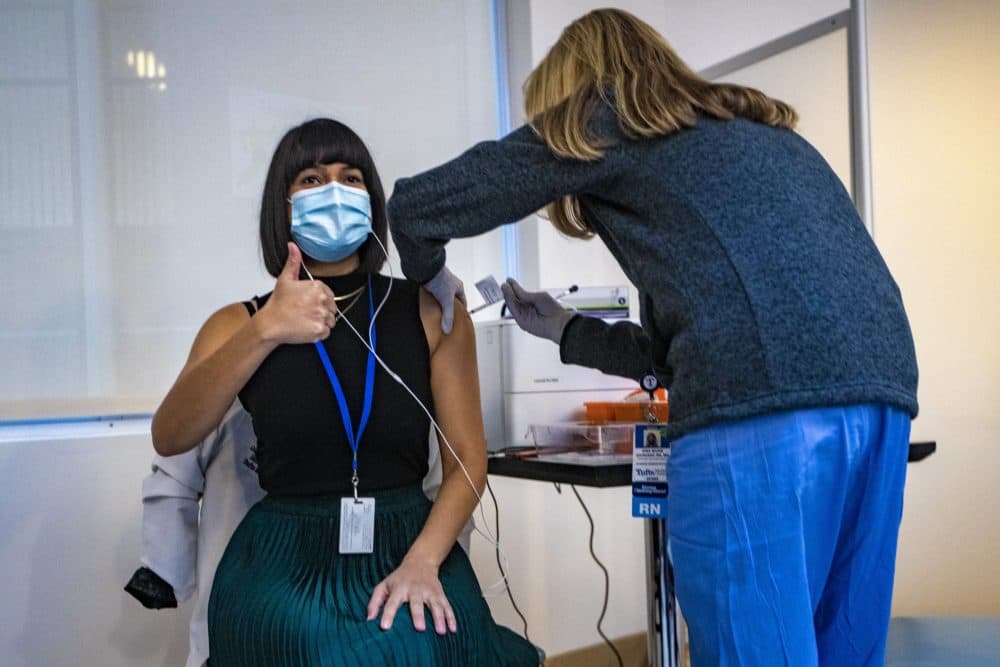
Over at Tufts Medical Center, cameras clicked as the first vaccines were given out in a ceremonial event on Tuesday.
Dr. Shira Doron, the hospital's epidemiologist, was one of 10 employees to be vaccinated to try to boost confidence in colleagues who may be more hesitant.
Doron rolled up her sleeve as a nurse readied the injection. She barely seemed to notice the shot as it went in, but she says the moment was powerful.
"It is very bittersweet because we have hit that milestone of 300,000 deaths, and we know that we still have our long winter ahead," Doron says. "But, at the same time, it’s a good day to have hope and to be confident, finally, that there’s some light at the end of this dark, dark and long tunnel."
Sandra Gibbons, an ER nurse, says her co-workers are wiped out and anxious to be vaccinated against COVID.
"We’ve got to try. It’s hurting too many people and not just deaths — the lingering illnesses. People just have to trust things and time, time will tell. They’ll see many of us get it and do fine and look back in history — vaccines work. They really do," Gibbons says.
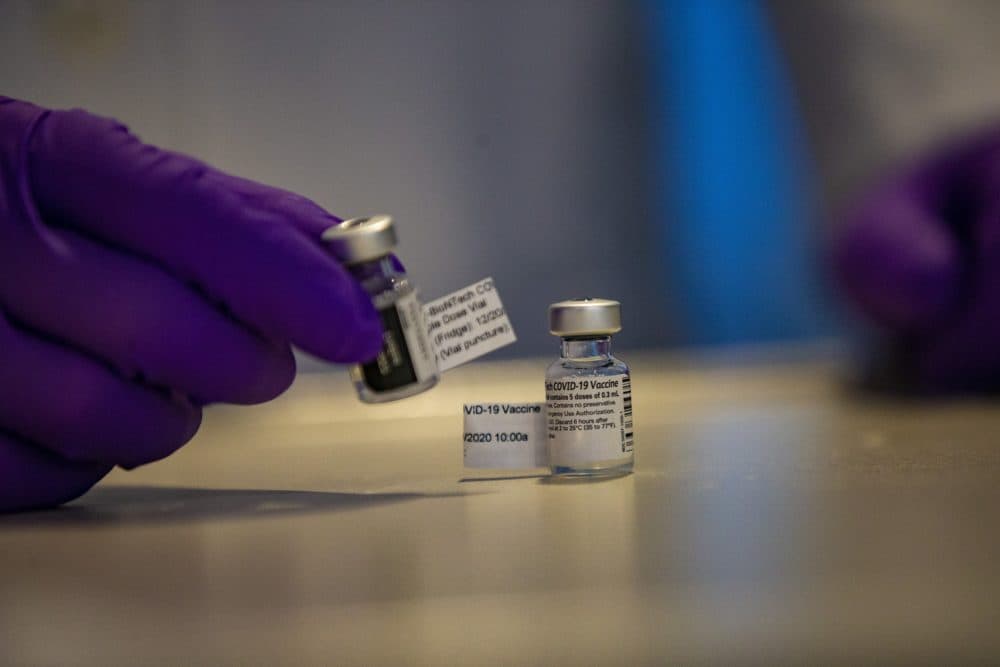
Security guard Shardee Burston says she’s weighing risks of a disease she’s getting used to, COVID-19, with a vaccine she fears.
"I’m not even worried about COVID. I go into rooms, I’ve been exposed plenty of times, I have yet to get sick, so I maybe I have a better immune system than others," Burston says. "And I don’t want to put something in my system..."
Thelma Samuels, a Tufts medical assistant, says she came to get her shot because COVID-19 is a frightening disease.
"I would do anything to prevent being scared," she says. "The shot doesn’t kill but COVID kills, so go get it."
Tufts plans to ramp up and eventually vaccinate some 2,000 front-line COVID staff with a first dose before the end of January.
Tufts Chief Medical Officer Dr. Saul Weingart says the hospital can’t go any faster right now; there aren’t enough vaccinators.
"Because the hospital is just so full there aren’t a lot of extra nurses going around," he says. "So we’ve been talking to the medical school, the students will go on vacation soon so maybe we can train up some of the students."
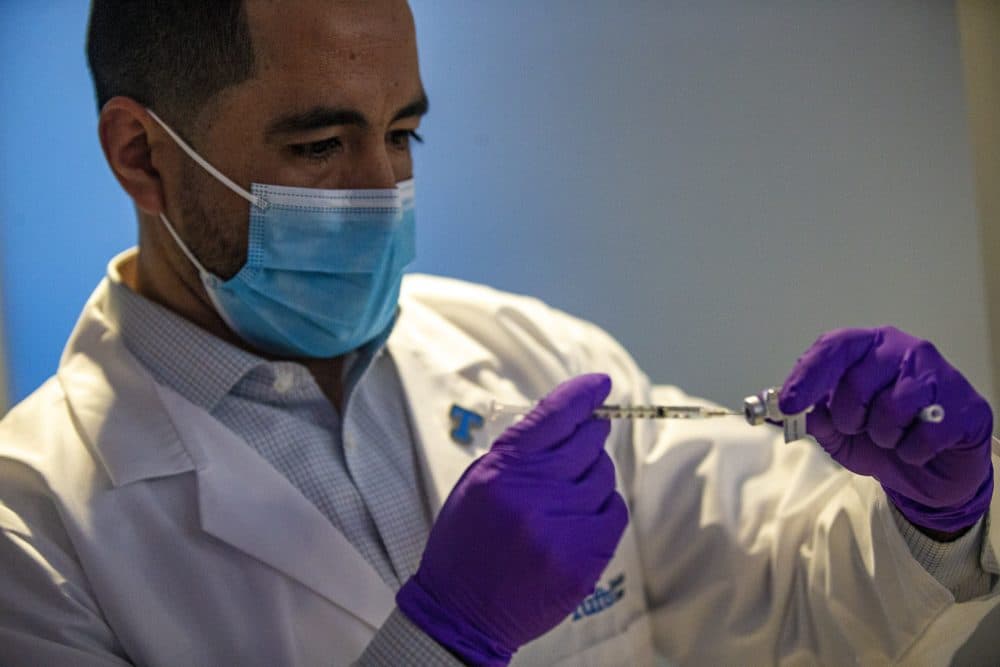
Other hospitals are expected to begin vaccinating their workforces soon, including Boston Medical Center and Massachusetts General Hospital.
Over the next couple of months, the state expects to receive enough doses to inoculate roughly 300,000 people with the Pfizer coronavirus vaccine.
A second vaccine, developed by Cambridge-based Moderna, is also on the agenda this week for federal regulators considering an emergency use authorization. The data so far appears promising, and an authorization for that vaccine could double the number of doses headed to Massachusetts over the next few months.
In the meantime, from Southcoast Health nurse Barros' perspective, the pandemic is still getting worse before it gets better. Each day, he says, he sees more patients admitted.
"People are even sicker this go around it seems," he says. "We're requiring more oxygen. It's really terrifying to see every day. Sometimes you just want walk out of here and cry in the car on your way home. It's something I hope we can get over soon."
With the arrival of the vaccine, Barros says he hopes that day is just around the corner.
This article was originally published on December 15, 2020.
This segment aired on December 16, 2020.

